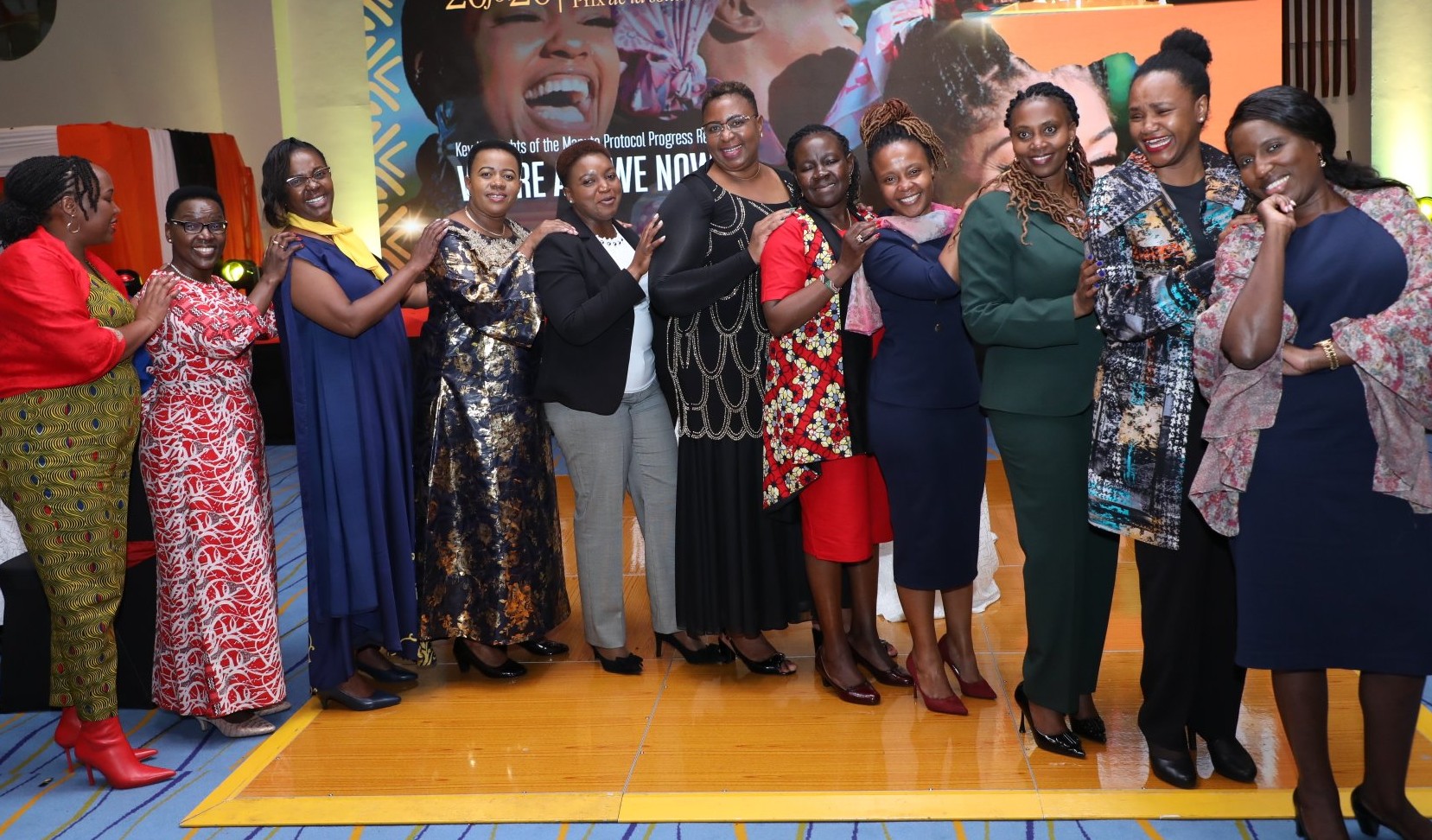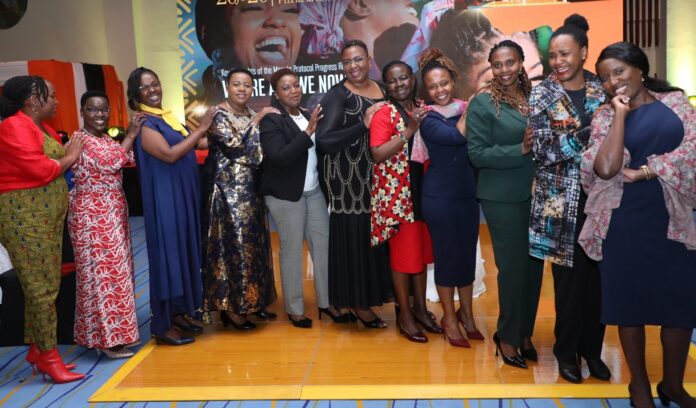By Juliet Akoth
Nairobi, Kenya: The 20th anniversary of the Maputo Protocol was recently celebrated with high-level events in Nairobi, Kenya. The celebrations included the launch of a landmark report, “20 Years of the Maputo Protocol: Where Are We Now?”, which summarizes the progress made in Africa towards the ratification, domestication, and implementation of the Protocol, highlighting key achievements and challenges.
A multistakeholder approach was utilized in coming up with the report with organizations like Solidarity for African Women’s Rights Coalition (SOAWR), Equality Now, and Make Every Woman Count (MEWC) taking part in its formulation.
During the launch ceremony, the Chief Guest Hon. Aisha Jumwa, Cabinet Secretary for the Ministry of Public Affairs, Gender and Affirmative Action, reiterated Kenya’s commitment in implementing the protocol.
“The Maputo Protocol stands at a crucial moment whereby beyond earning recognition as one of the most important and progressive frameworks on women’s rights, there is a need for countries to reaffirm their commitments, accelerate efforts and deploy adequate resources in order to realize the aspiration of all women and girls in Africa. As Kenya, we are keen on ensuring that the provisions of the Maputo Protocol are implemented to their full extent,” noted Jumwa.
The Maputo Protocol addresses crucial issues affecting women’s lives, serves as a comprehensive legal framework, promotes women’s empowerment and participation, and establishes a system of accountability for African countries. All this have to a great extent fostered a culture of transparency and progress in the promotion of gender equality.
The Protocol explicitly condemns harmful practices such as female genital mutilation, child marriage, and violence against women – sending a clear message that these violations must be eradicated. By integrating the Protocol’s principles into their legal systems, member states ignite a culture of gender equality.
While 80% (44 out of 55) of AU Member States have ratified or acceded to the Protocol, the new report highlights that the full implementation of the Protocol’s provisions is still a work in progress, with some States submitting reservations to modifying the legal effect of certain provisions.
Nonetheless, human rights campaigners agree that allowing reservations is preferable to States not adopting the Maputo Protocol at all.
According to the Director of Make Every Woman Count, Rainatou Sow, “The ratification of the Protocol is a crucial step towards achieving gender equality. Ratifying the Maputo Protocol sends a powerful message that states are committed to protecting and promoting women’s rights.”
The report further revealed that progress is not evenly distributed, with some areas showing better outcomes for women compared to others.
In the report, Economic and social welfare rights have improved considerably in AU Member States, with more than 50% of African countries enacting laws mandating equal remuneration for work of equal value and providing paid maternity leave of 98 days or longer. Several countries prohibit discrimination based on gender and sexual harassment in the workplace. Other achievements highlighted in the report include:
Legislation on marriage rights
Legislation on rights related to marriage has been enacted in the AU Member States, addressing issues such as the legal age of marriage and increasing punishments for early, child, and forced marriages.
Institutional reforms, including the establishment of national committees and awareness campaigns, have contributed to the prohibition of child marriage in some countries.
Health and Healthcare
Almost all countries have maintained constitutional provisions related to health and healthcare, with six countries enshrining rights related to reproductive healthcare. Legislative reforms integrated with laws and equality and gender-based violence have supported reproductive health rights. Efforts to combat violence against women, including female genital mutilation (FGM), have resulted in enacting constitutional reforms, adopting national action plans, and establishing support services.
Women’s participation in political and decision-making processes
Constitutional provisions establishing quotas on women’s representation in legislatures have been implemented in ten countries. The report highlights that national gender or development strategies have integrated approaches to increase women’s participation in politics, and countries have launched campaigns to raise awareness and increase representation.

However, the report also underscores that challenges remain despite the significant progress that has been achieved over the past two decades.
African governments have therefore been urged to prioritize eliminating harmful traditional practices, gender-based violence, and discrimination against women and girls.
Speaking during the launch, Africa Regional Director at Equality Faiza Mohamed urged AU member states to embrace a multi-sectoral approach to fast-track the fulfillment of their obligations.
“Harmonizing national laws with the principles outlined in the Maputo Protocol and addressing deeply entrenched societal beliefs are crucial steps towards gender equality,” she said.














